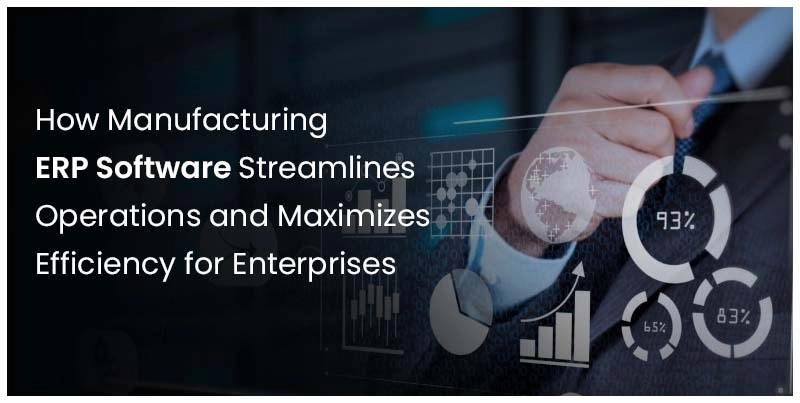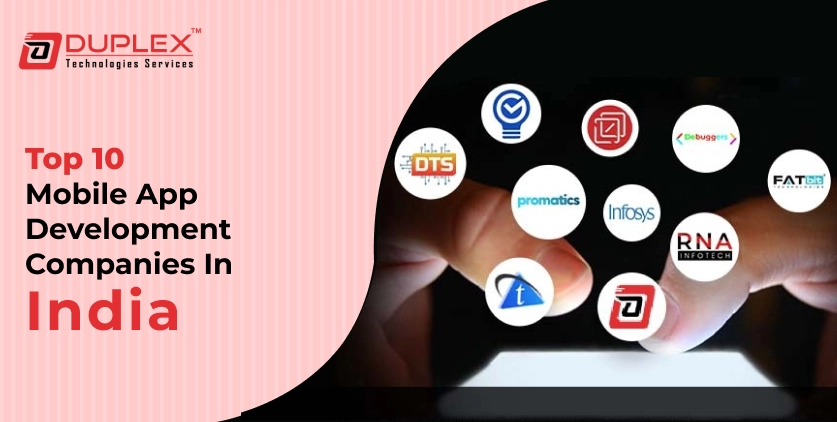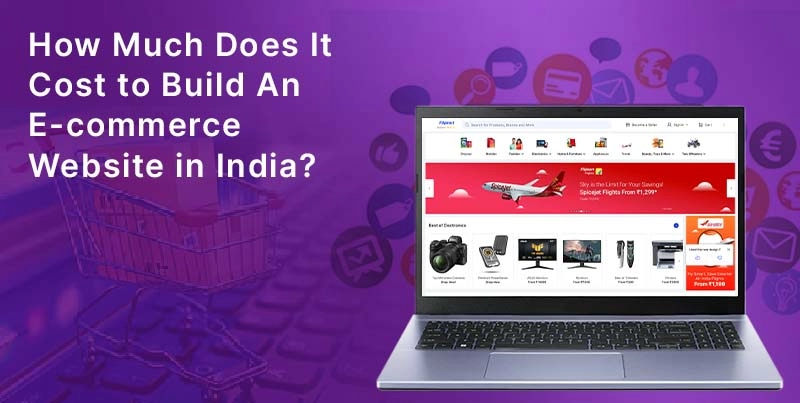How Manufacturing ERP Software Streamlines Operations and Maximizes Efficiency for Enterprises

Posted By : Mr Ankit, Posted Date : Sep 06, 2023
An Overview
In this ever-advancing and highly competitive realm of manufacturing, embracing ERP software has become a necessity for companies that are striving to accomplish operational excellence. In this purview, ERP (Enterprise Resource Planning) software provides cost-effectiveness and sustainable growth. It has emerged as a powerful tool that can empower manufacturers to boost their operations to new levels in this rapidly evolving industry. In this article, we will be dealing with how manufacturing ERP Software streamlines operations and maximizes efficiency for enterprises.
Table of Contents
- What is Manufacturing ERP?
- The Pitfalls of Manufacturing Without ERP
- How ERP Systems Can Level Up Manufacturing Operations?
- Is Manufacturing ERP a Necessity for All Kinds of Companies?
- How Can Businesses Build An Efficient Custom Manufacturing ERP System?
- How can Duplex Technologies help alleviate the challenges of developing ERP software?
- Summing Up!
What is Manufacturing ERP?
Manufacturing ERP, or Enterprise Resource Planning, is a software solution designed comprehensively that has the potential to streamline the operations of manufacturing companies by enhancing them. ERP works as a centralised platform that integrates various facets of a manufacturing business and provides an all-encompassing solution.
Manufacturing ERP has enabled organizations to manage their resources successfully, optimise processes, and make better favourable decisions. It has transformed the realm by not only providing real-time visibility into key metrics but also enabling better control over production, quality, and related costs.
Growth of the ERP Software Market
The global ERP software market has experienced significant growth in recent years, reaching a noteworthy valuation of $54.76 billion in 2022. Experts have predicted that this upward trajectory is very likely to be sustained in the years to come. They have projected an annual growth rate of 11.0% from 2023 to 2030. These statistics testify to the increasing implementation of ERP systems, with a notable emphasis on the manufacturing sector. As industries have started to increasingly recognize the benefits of ERP solutions, the adoption of such software will continue to be a substantial trend in the business arena.
The Pitfalls of Manufacturing Without ERP
We have often seen manufacturing enterprises that operate without the support of ERP systems grapple with numerous challenges. These difficulties can significantly obstruct their operational efficiency as well as competitiveness in the evolving market. Here is a list of some common challenges faced by such enterprises:
- Disjointed Processes: Various departments in business work in isolation and distinct tools and systems without ERP. This leads to a lack of integration and in turn to numerous inefficiencies, data inconsistencies and ultimately an increased manual workforce.
- Inventory Woes: It is often very challenging to manage an inventory. It has turned out to be a nightmare without ERP for many. Overstocking, understocking, and poor demand forecasting usually become so common that they gradually start impacting production schedules and customer satisfaction. This can undermine the performance of your enterprise.
- Inaccurate Data: The data entry done manually is time-consuming and is often found to be error-prone. Manufacturers are highly gullible to data inaccuracies which can ultimately lead to incorrect decisions and costly mistakes. The role of ERP comes into play here in speeding this process with no compromise on accuracy.
- Limited Visibility: Manufacturers lack real-time visibility into their operations without ERP, making it challenging for them to monitor production progress and track resources. It ultimately leads to manufacturers not responding promptly to issues.
- Compliance Risks: Meeting industry regulations becomes complex without ERP. Compliance failures can result in fines, reputation damage, and legal issues.
In today's competitive landscape, ERP Software development systems have evolved as essential tools for manufacturing enterprises. They streamline processes, enhance data accuracy, and provide the agility needed to thrive in a dynamic market. Those without ERP systems often face uphill battles in these areas, potentially hampering their growth and profitability.
How ERP Systems Can Level Up Manufacturing Operations?
Elevating Manufacturing Operations: The Power of ERP Systems: Staying competitive and efficient is paramount in the fast-paced evolving manufacturing arena. Enterprise Resource Planning (ERP) systems have emerged as an indispensable tool in achieving numerous substantial goals that can elevate manufacturing operations in the following ways:
- Streamlined Processes: ERP systems have integrated various aspects of manufacturing, from inventory management to production scheduling. This integration has streamlined processes and in turn reduced manual work, enhancing efficiency.
- Real-Time Visibility: ERP software provides real-time visibility into operations, enabling manufacturers to track production progress, monitor resource utilization, and address issues promptly. This has fostered better decision-making.
- Enhanced Inventory Control: ERP helps in optimizing inventory management and prevents overstocking and understocking. This leads to cost savings, minimized carrying costs, and materials availability when needed.
- Improved Quality Control: The inclusion of quality control modules in ERP helps manufacturers maintain product quality and compliance with industry standards. It also enables them to maintain consistent quality and timeliness in the resolution of issues.
- Data-Driven Insights: ERP systems generate comprehensive reports and analytics, empowering manufacturers with data-driven insights. These insights facilitate informed decisions, process optimization, and strategic planning.
ERP systems have become a boon serving as the key to efficiency, cost savings, and sustained growth. They have not only levelled up operations but have also positioned manufacturers for success in a dynamic market.
Is Manufacturing ERP a Necessity for All Kinds of Companies?
Manufacturing ERP (Enterprise Resource Planning) systems are versatile and beneficial for a range of diverse industries, but the need for them may vary from company to company. While not every business requires a Manufacturing ERP, it's essential for many.
Manufacturing Companies:
Manufacturers dealing with complex processes and diverse products tend to gain the maximum. ERP can expedite production, inventory management, quality control, and more quite efficiently.
Small to Large Enterprises:
Both small businesses aiming to scale and large enterprises with intricate operations can benefit. ERP scales with your business, ensuring you always have the tools you need.
Various Industries:
Manufacturing ERP is not limited to a single industry. It's used in aerospace, automotive, electronics, pharmaceuticals, food and beverage, and many others.
Businesses with Regulatory Requirements:
Companies dealing with strict industry regulations and compliance standards find ERP invaluable for ensuring adherence and reporting.
In essence, the decision to implement Manufacturing ERP depends on a company's size, industry, complexity, and growth aspirations. While it might not be a necessity for all, for many, it's a powerful tool for streamlining operations, reducing costs, and enhancing overall efficiency.
How Can Businesses Build An Efficient Custom Manufacturing ERP System?
Creating an efficient custom Manufacturing ERP (Enterprise Resource Planning) system tailored to your business needs requires a strategic approach. Here are five crucial steps to guide you:
- Needs Assessment: You should always begin by conducting a comprehensive analysis of the processes involved in your business. Identify pain points, inefficiencies, and areas where an ERP system can bring in substantial improvements.
- Define Objectives: You should then outline your goals and objectives for the ERP system explicitly. Determine carefully what you want to achieve, whether it's streamlining production, improving inventory management, or enhancing quality control.
- Choose the Right Partner: Another crucial step is to collaborate with a competent ERP development company that can understand your industry well and has a track record of building customized solutions. Their expertise can bring invaluable support in translating your requirements into a functional system and hence, you should choose one wisely.
- Customization: You should focus on working closely with your chosen partner to get the customization in the ERP system that you are precisely looking for to align with your specific needs. This majorly involves adapting workflows, integrating with existing systems, and designing user-friendly interfaces.
- Testing and Training: The final step is to thoroughly test the custom ERP system to make sure it meets all the objectives that you have defined from time to time. Last but not least, you should provide comprehensive training to your team so that they can effectively use the system to its full potential.
Building an efficient custom Manufacturing ERP system is a strategic investment that can revolutionize your operations. With careful planning and the right partner, you can craft a solution that drives efficiency, productivity, and growth for your business.
How can Duplex Technologies help alleviate the challenges of developing ERP software?
When it comes to selecting an ERP development company for your business, certain attributes set Duplex Technoogies apart from the rest. Here are three major qualities that define us as a reputed ERP development firm:
Expertise and Experience
As a top ERP development company, we have a team of professionals with extensive knowledge of ERP systems and unmatched prowess. They have a proven track record of successfully delivering robust ERP solutions across diverse industries. Their prolific experience enables them to stand firm and combat complex challenges efficiently and provide the best custom solutions.
Customization Capabilities
Every business is unique and targets a niche, and a good ERP development company understands this very well. We offer customizable ERP solutions that gel well with your specific requirements and preferences. From adapting to industry-specific regulations to accommodating unique workflows, we can curate and transform the system to fit perfectly into your operations.
Ongoing Support and Maintenance
An ERP system is a crucial long-term investment, and we don't just develop and deploy the software. We provide continuous support and maintenance, that includes regular updates, troubleshooting, and assistance to ensure the ERP system evolves well with your growing business needs.
These attributes indicate our proficiency as an ERP development company that can not only create a robust ERP solution but also partner with you for long-term success. So what’s the wait for? Connect with Duplex Technologies to get your tailored ERP solution today.
Summing Up!
Having manufacturing ERP software can substantially help enterprises mitigate operational challenges and elevate their growth in the competitive arena of businesses. ERP software has come up with striking features that streamline your business operations by acting like the central nervous system for all aspects of manufacturing business such as inventory management, production planning, scheduling, procurement, human resources, and financial management. Improve your business’ efficiency today with Duplex Technologies' best customised ERP software!















